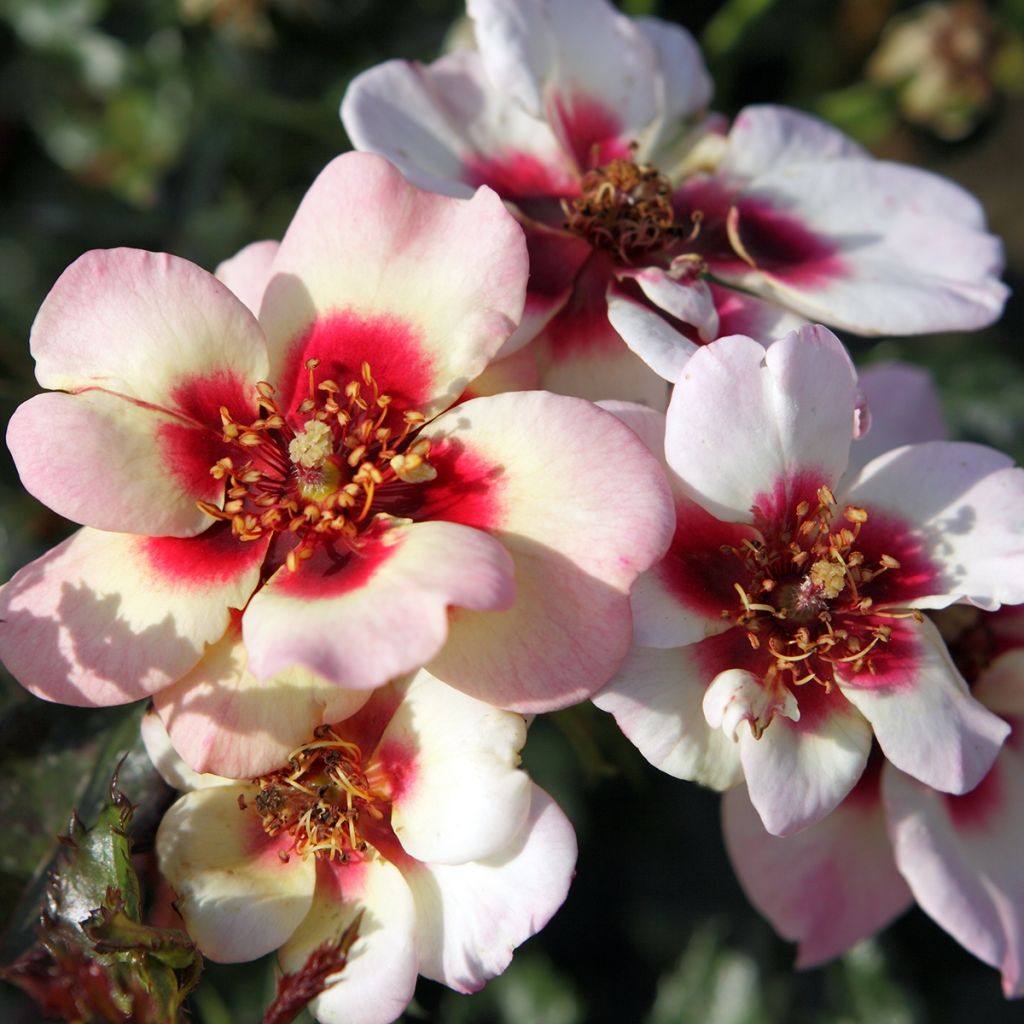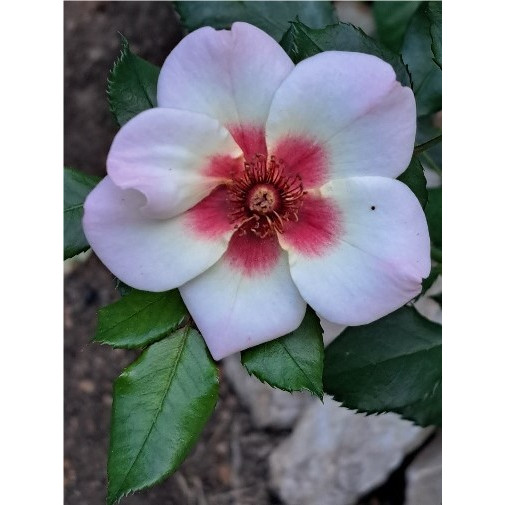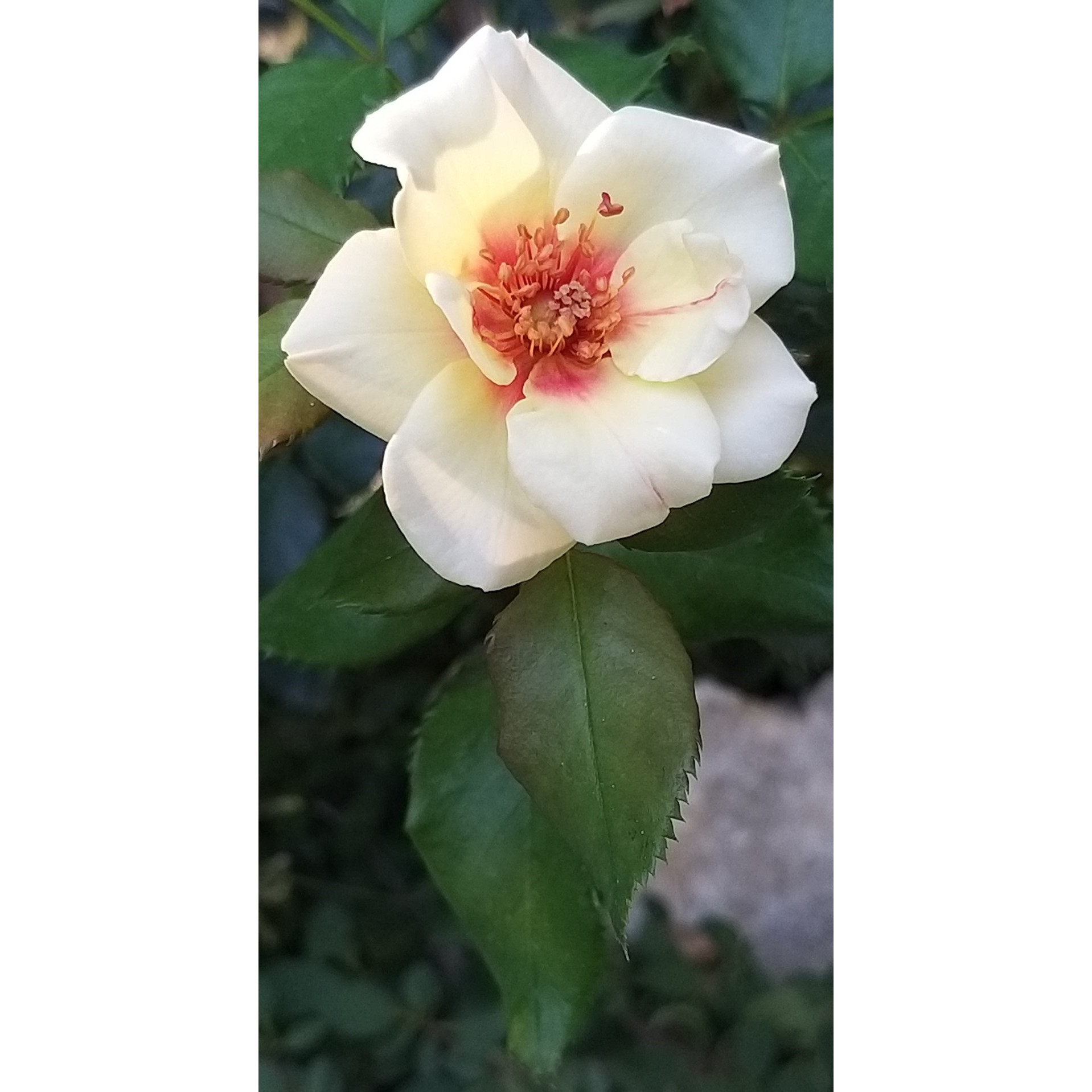

Rosa x persica Sweet Babylon Eyes - Hybrid Persian Rose


Rosa x persica Sweet Babylon Eyes - Hybrid Persian Rose
View more pictures
Hide images

Thierry P.

September flowering - image 8
Thierry P. • 84 FR

Thierry P.

August flowering - image 7
Thierry P. • 84 FR

Thierry P.

August flowering - image 5
Thierry P. • 84 FR
Rosa x persica Sweet Babylon Eyes - Hybrid Persian Rose
Rosa x persica Sweet Babylon Eyes ® (Intereybabolg)
Persian Rose, Peach Rose, Hulthemia Rose
Great plan that's off to a good start.
françoise, 28/03/2023
Special offer!
Receive a €20 voucher for any order over €90 (excluding delivery costs, credit notes, and plastic-free options)!
1- Add your favorite plants to your cart.
2- Once you have reached €90, confirm your order (you can even choose the delivery date!).
3- As soon as your order is shipped, you will receive an email containing your voucher code, valid for 3 months (90 days).
Your voucher is unique and can only be used once, for any order with a minimum value of €20, excluding delivery costs.
Can be combined with other current offers, non-divisible and non-refundable.
Home or relay delivery (depending on size and destination)
Schedule delivery date,
and select date in basket
This plant carries a 6 months recovery warranty
More information
We guarantee the quality of our plants for a full growing cycle, and will replace at our expense any plant that fails to recover under normal climatic and planting conditions.
Description
The 'Sweet Babylon Eyes' Rose charms with its countless bouquets of light flowers with a magnificent red heart, whose petals change colour depending on the temperature. Just like its brothers from the astonishing Babylon Eyes series, it is living proof that the queen of flowers still has surprises in store for us. Derived, among others, from the mysterious Persian rose, this hybrid has an early, abundant and perpetual flowering, great robustness, and natural resistance to rose diseases. The plant tolerates water scarcity well and has beautiful dark and glossy foliage. With a compact habit, this very pretty rose is suitable for gardens of all sizes and works wonders in a large pot.
The Rosa x persica 'Sweet Babylon Eyes' descends, among others, from a wild rose discovered in 1784 by the botanist André Michaux in the Zagros Mountains, straddling Iran and Iraq. The uniqueness of its bicoloured flowers has since prompted rose breeders to attempt hybridisation with other cosmopolitan species and varieties. After years of research and selection, very interesting new cultivars have emerged all over Europe. 'Sweet Babylon Eyes', born in the 2010s, is one of these varieties with exotic charm, still little known here. It is a shrub or bush with an upright and bushy habit, in a ball shape, not exceeding 70 cm (28in) in all directions. Its branches are moderately thorny and adorned with small foliage, a slightly shiny dark green, very healthy. The flowering starts quite early, in May-June, sometimes as early as March-April in warm climates. It is abundant, then regularly renews until September-October, if the soil is not too dry in the heart of summer. The almost single flowers, in open cups, measure 5 to 8 cm (2 to 3in) in diameter. They are often visited by bees. Their colours, ranging from pinks to reds, vary depending on the temperature and their age, creating an elegant play of colours on the bush. This variety produces fruits called hips. The plant is leafless in winter.
Exotic, hardy, and not water-demanding, 'Sweet Babylon Eyes' is a rose full of advantages that will seduce gardeners without a garden or those struggling with dry soil in summer and frost in winter. It can be adopted from the north to the south of our region, in a large border, in a bed, or in a large rockery. The "Babylon Eyes" roses can be mixed together and with many other plants such as garden irises, lavender, rockroses, rosemary, and catmints in dry soil. In cooler soil, it can be accompanied, for example, by pink or white foxgloves, catmints, or pretty grasses like Muhlenbergia capillaris or Stipa capillata. On the terrace or balcony, it can be surrounded, for example, by cineraria maritime, alstroemerias, agapanthus, or sweet Williams.
Obtained by Interplant and launched in 2016 - The 'Sweet Babylon Eyes' rose was awarded at the 17th International New Roses Competition in Barcelona in 2017 as the most promising new variety.
Report an error about the product description
Plant habit
Flowering
Foliage
Botanical data
Rosa
x persica
Sweet Babylon Eyes ® (Intereybabolg)
Rosaceae
Persian Rose, Peach Rose, Hulthemia Rose
Cultivar or hybrid
Planting and care
The Sweet Babylon Eyes rose is not very demanding on the type of soil, but it dislikes heavy and suffocating soils. It thrives in all sufficiently sunny regions, up to 1000 m (3281ft) altitude, and is not afraid of diseases, cold, or drought once well established (very dry soil in summer will dry out the flowering). It adapts to all gardens, as long as the cultivation is well taken care of! Plant it in well-prepared and properly drained ordinary soil, and in a sunny location. Remove faded flowers to encourage new blooms. In late winter, in February-March, prune moderately, even with shears. It may be useful to remove dead wood in winter.
Planting period
Intended location
Care
-
, onOrder confirmed
Reply from on Promesse de fleurs
Haven't found what you were looking for?
Hardiness is the lowest winter temperature a plant can endure without suffering serious damage or even dying. However, hardiness is affected by location (a sheltered area, such as a patio), protection (winter cover) and soil type (hardiness is improved by well-drained soil).

Photo Sharing Terms & Conditions
In order to encourage gardeners to interact and share their experiences, Promesse de fleurs offers various media enabling content to be uploaded onto its Site - in particular via the ‘Photo sharing’ module.
The User agrees to refrain from:
- Posting any content that is illegal, prejudicial, insulting, racist, inciteful to hatred, revisionist, contrary to public decency, that infringes on privacy or on the privacy rights of third parties, in particular the publicity rights of persons and goods, intellectual property rights, or the right to privacy.
- Submitting content on behalf of a third party;
- Impersonate the identity of a third party and/or publish any personal information about a third party;
In general, the User undertakes to refrain from any unethical behaviour.
All Content (in particular text, comments, files, images, photos, videos, creative works, etc.), which may be subject to property or intellectual property rights, image or other private rights, shall remain the property of the User, subject to the limited rights granted by the terms of the licence granted by Promesse de fleurs as stated below. Users are at liberty to publish or not to publish such Content on the Site, notably via the ‘Photo Sharing’ facility, and accept that this Content shall be made public and freely accessible, notably on the Internet.
Users further acknowledge, undertake to have ,and guarantee that they hold all necessary rights and permissions to publish such material on the Site, in particular with regard to the legislation in force pertaining to any privacy, property, intellectual property, image, or contractual rights, or rights of any other nature. By publishing such Content on the Site, Users acknowledge accepting full liability as publishers of the Content within the meaning of the law, and grant Promesse de fleurs, free of charge, an inclusive, worldwide licence for the said Content for the entire duration of its publication, including all reproduction, representation, up/downloading, displaying, performing, transmission, and storage rights.
Users also grant permission for their name to be linked to the Content and accept that this link may not always be made available.
By engaging in posting material, Users consent to their Content becoming automatically accessible on the Internet, in particular on other sites and/or blogs and/or web pages of the Promesse de fleurs site, including in particular social pages and the Promesse de fleurs catalogue.
Users may secure the removal of entrusted content free of charge by issuing a simple request via our contact form.
The flowering period indicated on our website applies to countries and regions located in USDA zone 8 (France, the United Kingdom, Ireland, the Netherlands, etc.)
It will vary according to where you live:
- In zones 9 to 10 (Italy, Spain, Greece, etc.), flowering will occur about 2 to 4 weeks earlier.
- In zones 6 to 7 (Germany, Poland, Slovenia, and lower mountainous regions), flowering will be delayed by 2 to 3 weeks.
- In zone 5 (Central Europe, Scandinavia), blooming will be delayed by 3 to 5 weeks.
In temperate climates, pruning of spring-flowering shrubs (forsythia, spireas, etc.) should be done just after flowering.
Pruning of summer-flowering shrubs (Indian Lilac, Perovskia, etc.) can be done in winter or spring.
In cold regions as well as with frost-sensitive plants, avoid pruning too early when severe frosts may still occur.
The planting period indicated on our website applies to countries and regions located in USDA zone 8 (France, United Kingdom, Ireland, Netherlands).
It will vary according to where you live:
- In Mediterranean zones (Marseille, Madrid, Milan, etc.), autumn and winter are the best planting periods.
- In continental zones (Strasbourg, Munich, Vienna, etc.), delay planting by 2 to 3 weeks in spring and bring it forward by 2 to 4 weeks in autumn.
- In mountainous regions (the Alps, Pyrenees, Carpathians, etc.), it is best to plant in late spring (May-June) or late summer (August-September).
The harvesting period indicated on our website applies to countries and regions in USDA zone 8 (France, England, Ireland, the Netherlands).
In colder areas (Scandinavia, Poland, Austria...) fruit and vegetable harvests are likely to be delayed by 3-4 weeks.
In warmer areas (Italy, Spain, Greece, etc.), harvesting will probably take place earlier, depending on weather conditions.
The sowing periods indicated on our website apply to countries and regions within USDA Zone 8 (France, UK, Ireland, Netherlands).
In colder areas (Scandinavia, Poland, Austria...), delay any outdoor sowing by 3-4 weeks, or sow under glass.
In warmer climes (Italy, Spain, Greece, etc.), bring outdoor sowing forward by a few weeks.





























